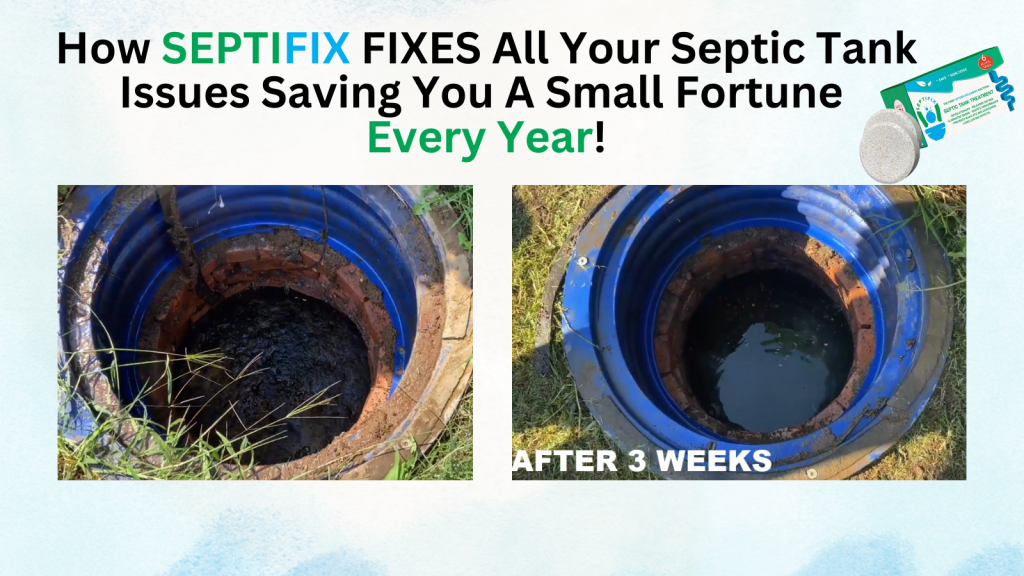Septic system regulations impact homeowners, buyers, and businesses. Staying compliant with new Tennessee septic tank laws ensures your system functions properly and avoids legal issues. Here’s what you need to know about the latest changes, permits, and maintenance rules.
Table of Contents
- Understanding Tennessee’s Septic System Regulations
- New Changes in Tennessee Septic Laws
- Permits and Installation Requirements
- Compliance and Homeowner Responsibilities
- Impact on Home Sales and Property Owners
- Key Contact Information
- Septifix
- Septic Permit Links by State
- Septic Permit Forms By State
Understanding Tennessee’s Septic System Regulations
Tennessee regulates septic systems, also called onsite wastewater treatment systems, through the Tennessee Department of Environment & Conservation (TDEC) and local health departments. Laws apply to residential and commercial septic installations, ensuring systems are safe and environmentally friendly.
Foul Odors Around the Property: What Causes Septic Odors and How to Identify Their Source
New Changes in Tennessee Septic Laws
Recent updates affect septic permits, soil testing, and inspections. Homeowners now face stricter regulations on failing or aging systems.
- Stricter Soil Testing: Before installing a septic system, a percolation test must meet stricter soil absorption standards.
- Enhanced Inspection Requirements: New and existing systems require more frequent inspections to prevent groundwater contamination.
- Alternative Treatment Standards: New guidelines regulate aerobic treatment units (ATUs) and other advanced systems in areas with poor soil conditions.
- Failing Septic Systems: Homeowners must repair or replace failing septic tanks promptly to avoid legal penalties.
Permits and Installation Requirements
A Tennessee septic system permit is required before installation. Here’s how to obtain one:
- Submit an Application: Contact your local health department for a permit application.
- Schedule a Soil Test: A licensed professional must conduct a percolation test to ensure the site meets regulations.
- Design Approval: Your proposed septic system design must comply with TDEC standards.
- Installation and Inspection: A certified installer must install the system, followed by a final inspection.
Permit fees vary by county, typically ranging from $250 to $1,000. Approval timelines depend on soil test results and local regulations.
Compliance and Homeowner Responsibilities
To stay compliant with new Tennessee septic tank laws, homeowners must:
- Follow pumping schedules: Tanks should be pumped every 3 to 5 years.
- Avoid prohibited discharges: Keep hazardous chemicals out of your system.
- Maintain drainfields: Prevent damage by keeping vehicles and heavy equipment off your leach field.
- Fix failing systems promptly: Leaks, backups, or standing water indicate a system failure requiring immediate attention.
Failing to comply can result in fines, property liens, or mandatory system replacements.
Impact on Home Sales and Property Owners
Tennessee’s septic laws affect real estate transactions. If you plan to buy or sell a home with a septic system, consider these key points:
- Inspection Required: Many counties require a septic inspection before transferring property ownership.
- Upgrade Requirements: If a system does not meet current regulations, upgrades may be required before the sale.
- Disclosure Laws: Sellers must disclose septic system details, including maintenance history and any known issues.
Key Contact Information
For specific requirements in your area, reach out to the appropriate regulatory agencies:
- Tennessee Department of Environment & Conservation (TDEC) – Visit TDEC’s website or call (888) 891-TDEC for state regulations.
- Local Health Departments – Contact your county health department for permit applications, inspections, and compliance questions. Find local offices at Tennessee Health Department’s website.
- Licensed Septic Professionals – Hiring a certified septic installer ensures compliance with regulations. Use the Tennessee Onsite Wastewater Association (TOWA) directory to find a professional near you.
Conclusion
Understanding new Tennessee septic tank laws helps homeowners avoid fines, protect the environment, and ensure proper wastewater treatment. Whether installing a new system or maintaining an existing one, following regulations is essential.
Septifix

How to Maintain a Healthy Bacteria Balance | Tips to Ensure Your Septic System Has the Right Microbial Environment
Directory | Vermont Septic Service Providers : Best Professionals
Hiring a Professional Septic Tank Installer
Sewage Backup in the Home: Immediate Steps and Long-Term Solutions
Pumping Laws and Regulations: Local and Regional Rules Governing Septic Tank Pumping and Waste Disposal Pumping Laws and Regulations
Directory | Utah Septic Service Providers : Best Professionals
Homemade Septic-Safe Cleaning Solutions: DIY Recipes for Environmentally Friendly Septic Maintenance
Septifix for Odor Removal: How Septifix Tablets Can Effectively Eliminate Septic Odors
Septic Permit Links by State









